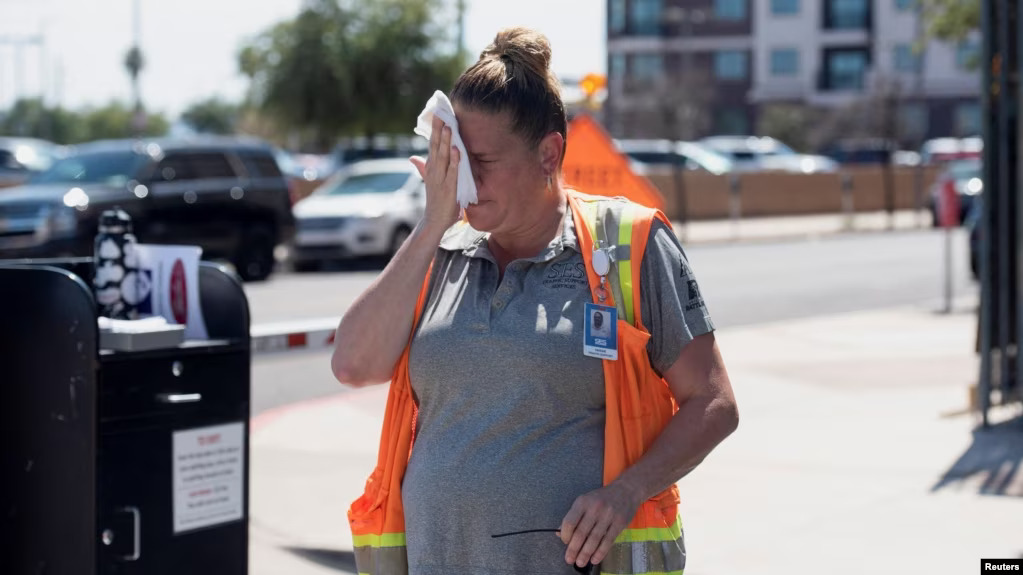Fossil Fuels and Climate Change
Burning fossil fuels is costing us too much.
Burning dirty fossil fuels for our energy is creating heat-trapping pollution that is causing our planet to overheat. It’s going to keep getting worse until we upgrade to safe and clean energy.
Human activity, mostly fossil fuel burning, currently adds over a thousand tons of carbon dioxide per second to the atmosphere, the oceans, and the biosphere. Natural cycles, volcanoes, and the sun have all been ruled out as the cause of the current heat buildup. They are either too small, too slow, or going in the opposite direction. It’s us.
What are fossil fuels?
Fossil fuels are the main culprits behind our overheating planet. These are dirty fossil energy sources like coal, oil, and gas that come from the remains of plants and animals that lived millions of years ago. We’ve been using them to power our cars, heat our homes, and keep the lights on.
But here’s the problem: when we burn fossil fuels, we pump carbon pollution into the air. This pollution acts like a heat-trapping blanket around our planet, letting heat from the sun in, but keeping it from getting out.
What happens if we don’t stop burning fossil fuels?
If we keep burning fossil fuels unchecked, our planet will continue to overheat. But this isn’t just about warmer summers—it’s about more intense hurricanes, devastating floods, and raging wildfires. Sea levels rise as the heat melts glaciers and ice sheets, threatening coastal communities.
The rising temperatures don’t just affect our environment. They also disrupt our food production, water supplies, and even our health.
But there is good news.
The good news about fossil fuels and climate change
America has already passed a carbon pollution reduction plan, expected to reduce carbon pollution by 40% in the next ten years. We’re on our way to stopping the pollution that’s hurting the planet. If successful, here’s what experts say will happen within the next few years:
- About 80% of our electricity will come from clean sources, way up from today’s 40%, thanks to three times as much energy production from solar, wind, and other clean tech.
- Electric cars and trucks will also become the majority in markets, and a norm on our roads.
- The best part? Over a million new jobs will pop up across the country through the rise of the clean energy industry, clean manufacturing, and building retrofits.
But we’re not out of the woods yet. We need to keep pushing to upgrade to clean energy.
Why do we need to transition to clean energy?
Switching to clean energy isn’t just about fighting climate change—though that’s a big deal. It’s also going to lead to major improvements in our lives.
Upgrading to clean energy will allow us to breathe cleaner air and drink cleaner water. It will lead to improvements in our health, and help save money on energy bills. By embracing renewable energy, we’re creating a better and healthier future for everyone.
How you can help protect your community
Burning dirty fossil energy is the primary cause of our planet’s increasing temperatures. Transitioning to clean energy can make the biggest impact in preventing further damage to the planet. If we act now, we can help preserve the planet for generations to come.
Join CCL to stop the carbon pollution that’s overheating the planet. By becoming a part of CCL, you’ll connect with a nonpartisan group of neighbors who share your commitment to keeping your community healthy and safe for future generations.
Here’s what you can do right now:
✅ Talk to your friends and family about climate change
✅ Electrify your home with clean energy
✅ Join us to advocate for policy solutions that will stop the pollution that’s overheating the planet
Sign up to volunteer
By clicking Sign Up, you are agreeing to our terms of service and privacy policy. You can unsubscribe at any time.


